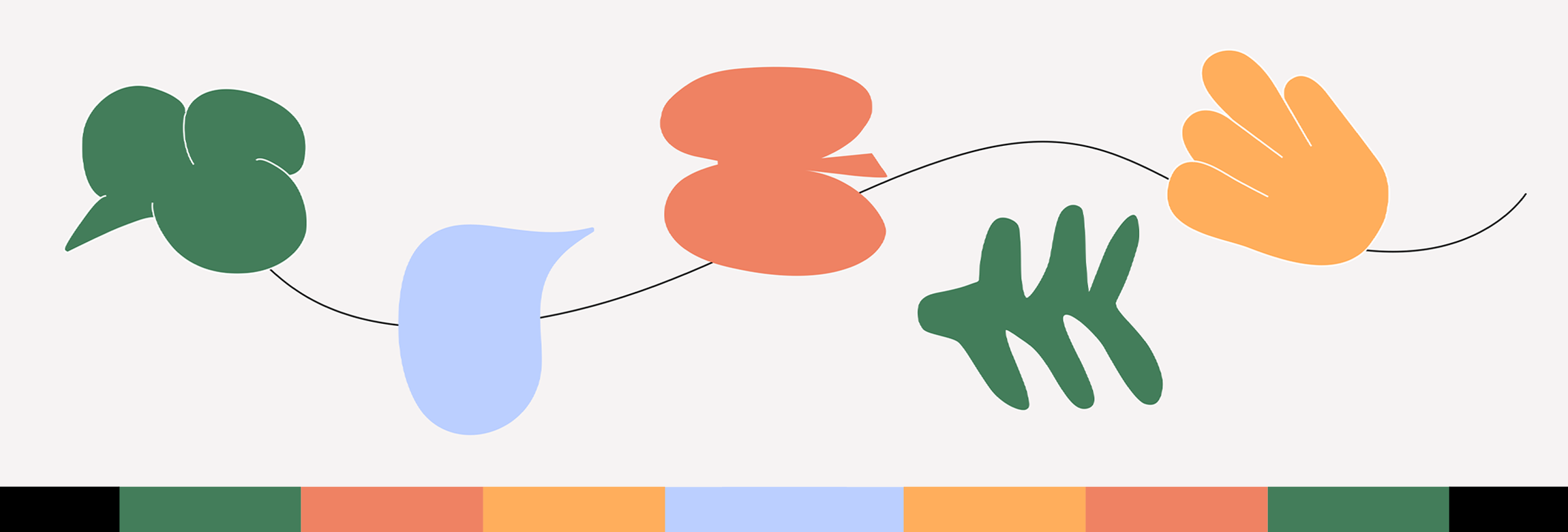Provocations
Rich Medina draws from the long tradition of the power of music and dance in the Black freedom struggle. As a globetrotting DJ, Rich’s unique curation of music has moved millions of people over two decades, opening up new ways of being together and of knowing oneself, while always referring back to a grounding in Black expression.
When the pandemic closed the door on clubs in early 2020, Rich was one of the earliest DJs to adapt. Rich developed a complex offering by hosting a variety of online parties that center music but also mix in video streaming, commentary, dance “rooms” and an ever active chat. We were drawn to Rich’s work because it is a consistent and safe way to stay connected with community — strangers and friends alike — despite the shutdowns. His work has kept that joyful communal space of the party alive. By doing this, Rich presented two threads related to care that we followed in our conversation.
1.
The party is a protective health factor
For many, the pandemic limited the frequency of chance encounters — the people you say hi to on the bus or stop to talk to on your way somewhere. Instead, many of us hunkered down with a handful of closer, deeper relationships. Public health research shows however that having many microconnections or “weak tie” relationships is actually an extremely important protective health factor, even more so than “strong-tie” relationships. Weak ties are a low-impact way of being recognized, they provide opportunities for connection, and they offer new information and experiences. The parties provide this space for thousands of people each week to see, be seen, and interact at the depth they choose in a non-competitive, joyful environment.
The consistency of the parties and their relationship to something bordering on sacred points us towards other public health findings. Rich refers to the community that comes together around the parties as a sort of secular congregation. Many dancers refer to their weekly dance party as their “church.” And although there are a number of other mitigating factors that might complicate how we understand the protective health factors of attending a weekly online dance party, public health research links religious involvement and spirituality, most commonly measured as frequency of attendance at religious services, with an approximately 20 percent reduced hazard of mortality. In other words, are there ways that we might draw parallels between the frequency of attendance at "the party" and a religious service?
More research would be needed for both of these lines of inquiry, but they offer intriguing ways to think about interdisciplinary approaches to promote protective health factors through the longstanding and popular power of collective music and dance in the form of parties.
2.
The party is a space of resistance and archive
We asked Rich what was at stake if we “lose” the party due to the pandemic. Rich barely hesitated, it gives the party the opportunity to be pirated. Rich reflected that the party has always gotten shut down or commercialized by dominant actors, in large part because the party is often a space of joyful resistance and nourishment in the face of oppression. Adaptation and innovation is part of the legacy.
Rich plays a lot of different kinds of music, but much of it finds resonance and power in communal settings, from Fela Kuti’s use of the Shrine as a place of cultural and political organizing, to the joyful hedonism of disco and house in places like Paradise Garage or the Loft, to the block parties of hip hop’s early DJs and MCs. Rich’s online parties draw a line between the joy, resistance and nourishment of party-based music and his own efforts to create a communal experience across the isolation of the pandemic. In this sense, Rich plays a dual role — instigating new communal spaces of connection, while contributing to the archive of Black musical expression. Quite literally, Rich plays from his own physical archive; his basement with the walls packed with thousands of records. But with the shift online, the recording and broadcasting of these shows contributes directly to the available digital archive. In looking to the root of the word archive — house of the ruler — we can see how the legacy of this Covid-era practice reflects not only a care for those experiencing the parties in real time, but also to future generations through the proliferation of these archives.

